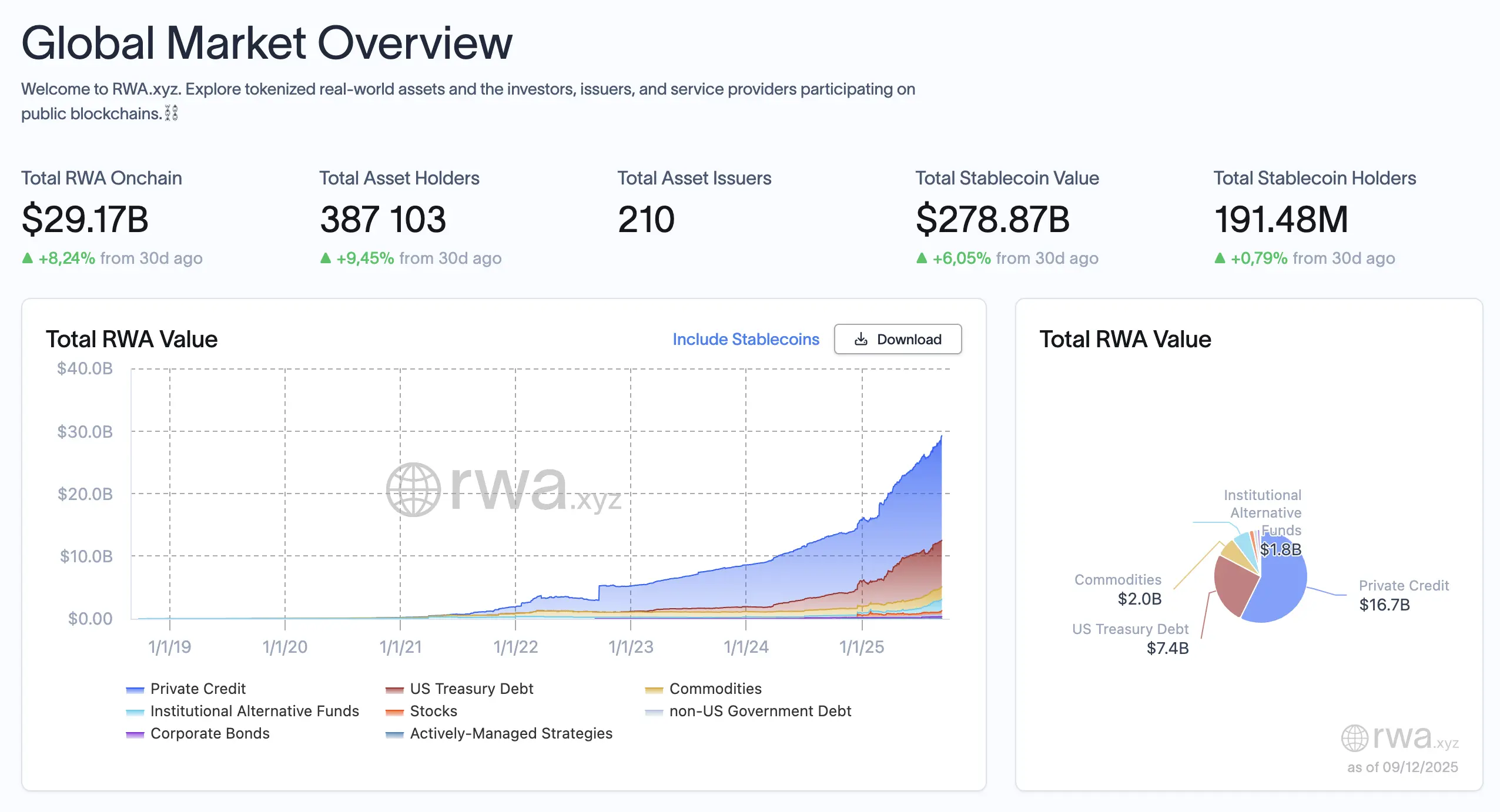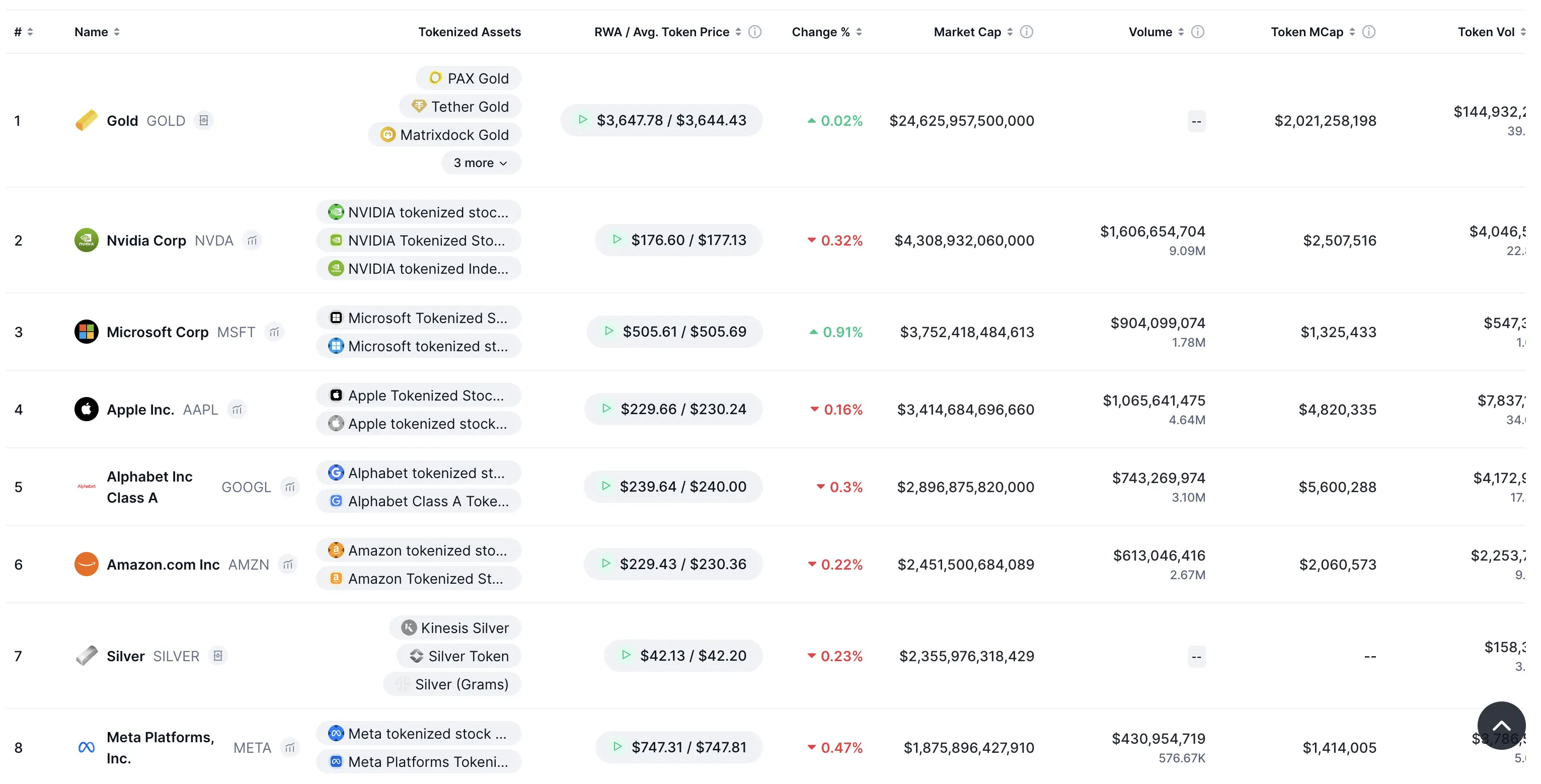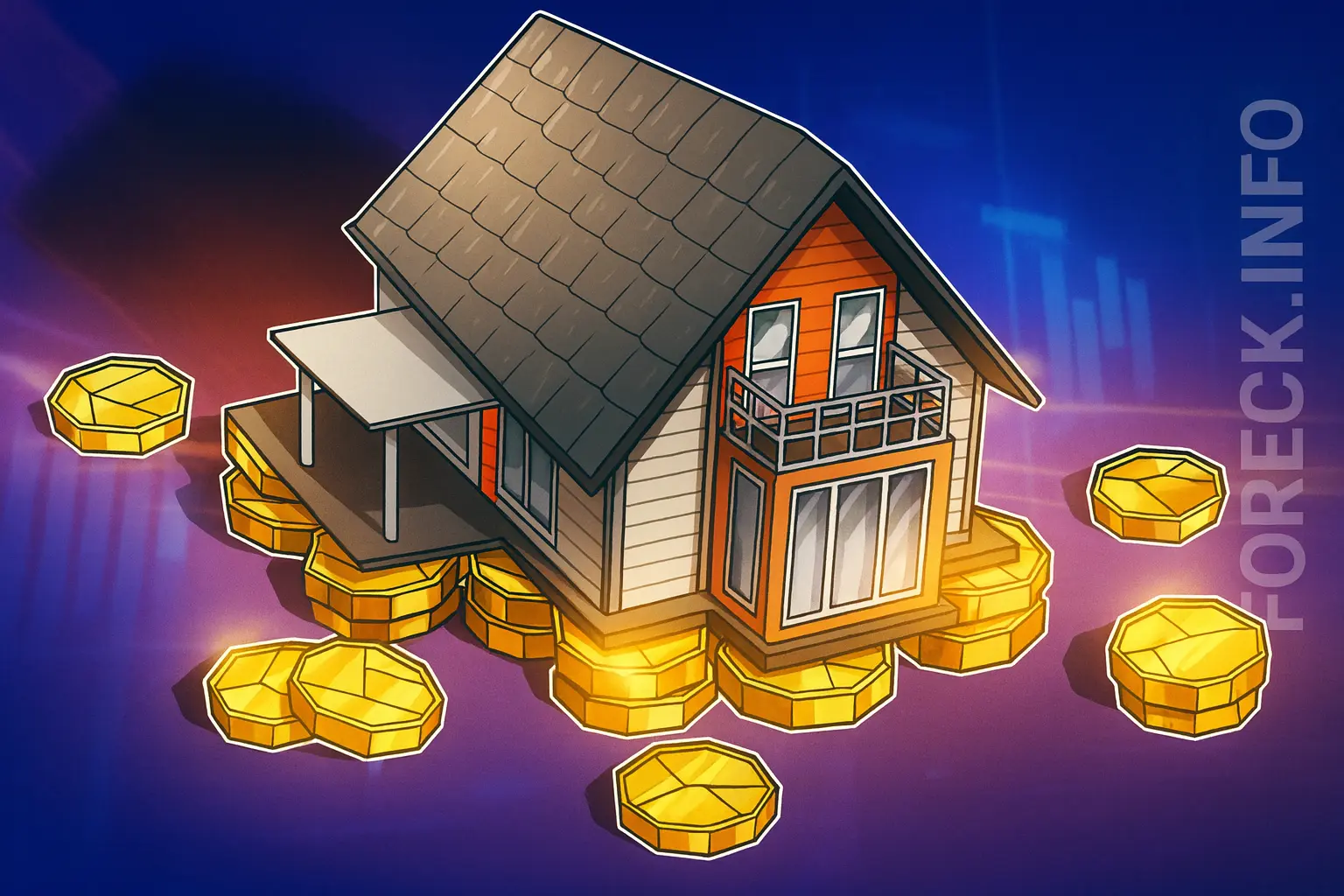The total value locked (TVL) in tokenized real-world assets has surpassed $29 billion, according to the latest data from RWA.xyz. Over the past thirty days, the market has grown by more than 8%, and compared to last year, it has surged by around 94%.
The largest share comes from private credit products, which account for about 69% of the entire RWA market. Roughly 21%, or $3.5 billion, is tied to U.S. government bonds.

Among the most active protocols are Maple Finance, Centrifuge, and Clearpool. These platforms continue to see steady inflows of capital and account for the bulk of credit products. At the same time, institutional interest is growing, with investors increasingly seeking ways to integrate traditional financial instruments into blockchain structures.
“Until 2024, tokenization in the U.S. was largely illegal, but since 2025 it has not only been legalized, it has also been actively supported by the government to modernize U.S. markets,” noted crypto analyst Ryan Adams on X. “Wall Street and fintech firms are being incentivized to adopt it. American capital markets are moving onto the blockchain. This process cannot be stopped.”
People are still underestimating Ethereum.
— RYAN SΞAN ADAMS - rsa.eth 🦄 (@RyanSAdams) September 11, 2025
They don't know America is coming onchain and it's using Ethereum as its ledger.
I demonstrated that Ethereum is leading in real world asset market share but let's add another dimension.
Let's talk Growth.
In the coming decades I… https://t.co/2A8TJKBgo2
According to CoinMarketCap, the combined market capitalization of all RWA tokens currently stands at $75 billion.

Reminder: RWA (Real World Assets) are tangible assets that exist in the physical world (real estate, gold, securities, art) that have been digitized and represented as tokens on the blockchain. This process, called tokenization, connects traditional finance (TradFi) with the world of cryptocurrencies and decentralized finance (DeFi), making investments in these assets more accessible, liquid, and transparent.

